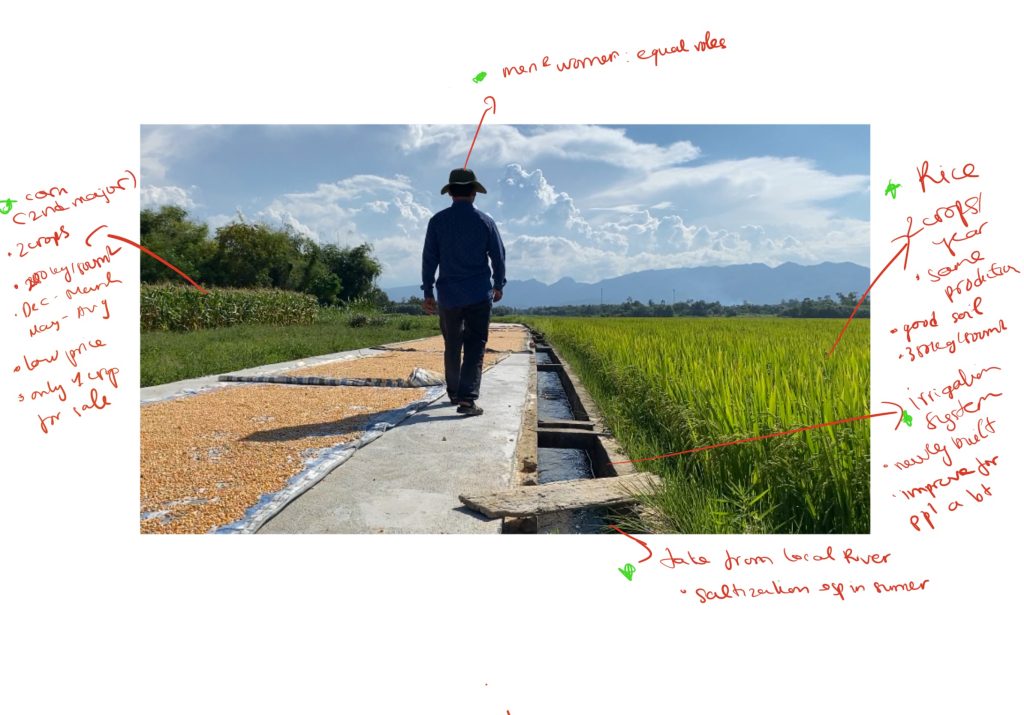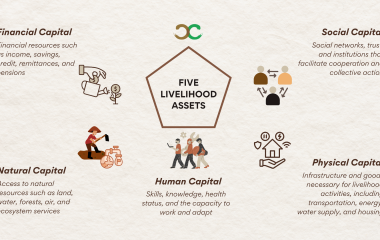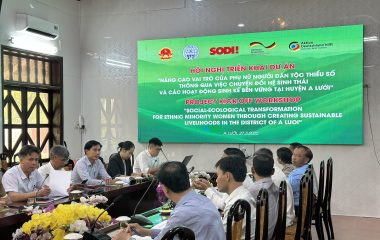Ethnographic Fieldnotes: Applications and Tacit Knowledge
- 16 August, 2024
- ckcvietnam
Ethnographic fieldnotes are frequently applied for data collection by CKC in social research, particularly in survey activities conducted in Quang Nam province in early August 2024 .
These fieldnotes are recorded flexibly based on the researcher’s preferences and specific conditions. CKC has utilized various methods such as traditional notebooks, technological devices, images, and fieldnote applications.
To rapidly expand observations, adjust and maximize the field information collection process, CKC always performs quick analyses of ethnographic records whenever suitable conditions arise. These analyses often involve identifying keywords and performing thematic analysis.
The flexibility of ethnographic fieldnotes can sometimes lead to confusion for researchers when deciding what to observe and record amidst numerous simultaneous activities. To mitigate this, researchers should prepare with a clear observation and recording plan and focus on building tacit knowledge—knowledge gained from observation and experience that is often unconscious and difficult to articulate. Tacit knowledge has been proven to be crucial for effective field notes.
While ethnographic fieldnote is fundamental in social research, accurately and comprehensively capturing the rich, ever-changing information in real-life conditions requires researchers to undergo a long process of developing and refining their knowledge and skills, as well as staying updated with the latest tools and applications.

(Quyen Mai)
Source:
· Delamomt, Sarah (2019). Ethnographic Fieldnotes: The Foundations of Ethnography, Sage publication.
· Antony, Alexander (2015). “Tacit Knowledge and Analytic Autoethnography: Methodological Reflections on the Sociological Translation of Self-Experience”. Bielefeld: transcript Verlag














